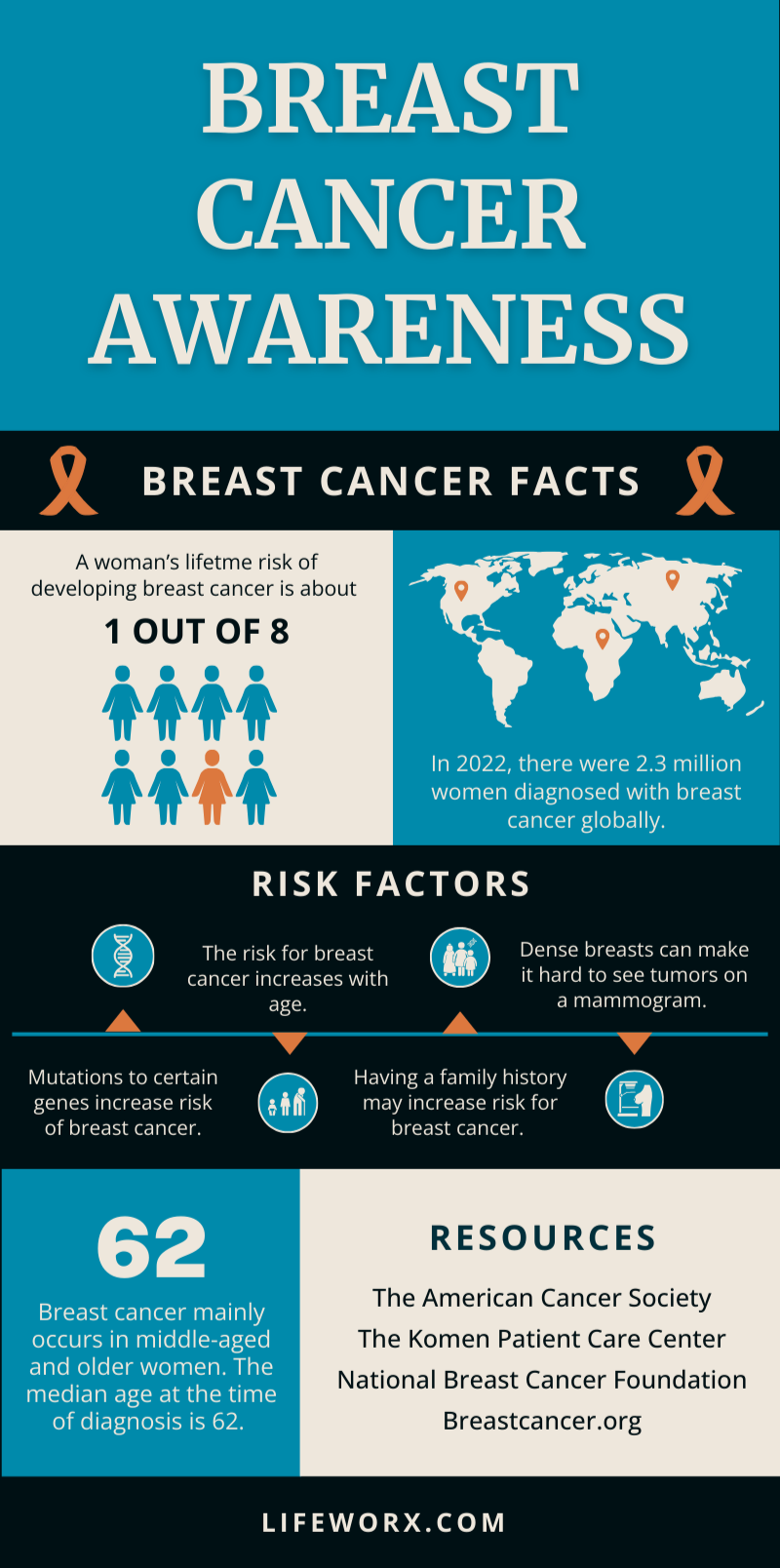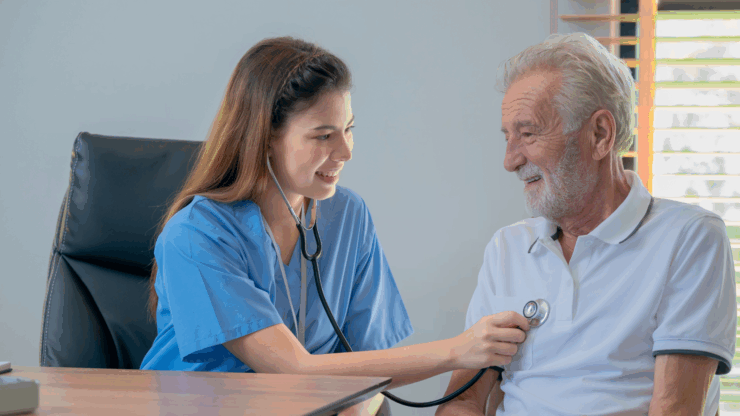
Managing Breast Cancer in Senior Women
Key Takeaways
- Breast cancer risk increases with age, and treatment plans may differ for older adults.
- Early detection through regular screenings remains critical.
- Managing side effects and daily routines can become more challenging during treatment.
- Emotional support and clear communication help ease the journey.
- LifeWorx caregivers assist with everyday tasks, offering stability and comfort during care.
Every October, Breast Cancer Awareness Month shines a light on a disease that impacts millions of women worldwide. While this campaign highlights the importance of regular screenings and early detection for all women, one demographic that requires special attention is senior women.
The growing risk of breast cancer with age
According to the U.S Centers for Disease Control and Prevention, breast cancer is the most common cancer diagnosed among women after skin cancer. As senior women are living longer, healthier lives, the importance of regular breast cancer screenings becomes more critical.
As women reach the age of 65, they may think they don’t need mammograms anymore, especially if breast cancer doesn’t run in their family. However, it’s crucial for women in this age group to understand that mammogram screenings are essential for early detection of breast cancer, which greatly improves the chances of successful treatment.

The power of early detection for older women
The importance of early detection for senior women cannot be understated. Many women are healthy enough to benefit from early intervention and treatments, leading to improved outcomes and high survival rates. For senior women, choosing the proper screening method depends on their overall health, breast cancer risk factors, and personal preferences. Breast cancer screening options include:
- Breast Self-Examination (BSE): BSE is a way for women to check for any changes in their breasts, such as lumps, swelling, or changes in shape or texture. While this is no longer recommended as the sole method for screening, it remains a critical practice. BSE helps women become familiar with the look and feel of their breasts, allowing them to notice changes that may require medical evaluation.
- Mammograms: Mammograms are an essential tool in detecting breast cancer at an early stage before it causes noticeable symptoms. They’re particularly effective for older women, as breast tissue becomes less dense with age, making it easier to identify tumors.
- Breast Magnetic Resonance Imaging (MRI): MRI uses magnetic fields to produce detailed images of the breast. It’s typically used in high-risk women or when other imaging methods have not provided clear results. MRI is highly sensitive and can detect small cancers that other methods might miss. MRI is beneficial for women who are at high risk due to family history or genetic factors.
Breast Cancer Awareness Month provides an important reminder for senior women to take charge of their health. As the risk of breast cancer increases with age, the power of early detection becomes more important. The advances in screening options today provide a major advantage in catching cancer early when it’s most treatable.
Compassionate care is essential for those already undergoing treatment. LifeWorx offers in-home care services that allow women to receive the support they need in their homes. From helping with daily tasks to providing emotional support, our caregivers can help women throughout their journey.

















